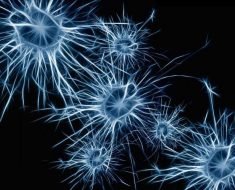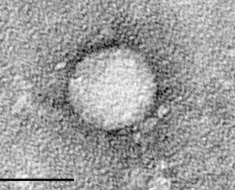Among people with lactose intolerance, the consumption of milk and dairy products may lead to several symptoms including abdominal discomfort, diarrhea and flatulence. Lactose intolerant individuals therefore tend to avoid consuming milk and milk products.
Deficiency
The main complication of lactose intolerance is nutrient deficiency. Milk and milk products form an important part of a healthy diet. These foods provide vitamins A, B12 and D as well as milk proteins and calcium. In most adults, much of the daily calcium requirement (around 700mg) comes from milk and milk products. In addition, these foods also contain lactose, which helps the body to absorb the required quantities of magnesium and zinc. Each of these minerals and vitamins are vital for the development of strong and healthy bones and teeth. Removal of milk products from the diet among lactose intolerant individuals may therefore lead to nutrient deficiency which can give rise to several complications such as:
- Bone loss or brittle bones, a condition called osteoporosis. The bones become brittle and easily breakable on subjection to trauma
- Osteopenia or low bone mineral density
- Weight loss
- Malnourishment or deficiency of vital nutrients in diet
Soy milk
Soy milk is a substitute for milk and milk products in many lactose intolerant populations. However, soy milk is not naturally rich in calcium, potassium, or vitamins A or D. It also does not contain any vitamin B12. These vitamins therefore need to be artificially supplemented. Furthermore, some breakfast cereals, breads and fruit juices have been fortified with vital nutrients to prevent deficiencies in populations who cannot consume milk and milk products.
Infants with lactase deficiency
Congenital lactase deficiency or deficiency of lactase since birth is a rare condition. Such individuals have little or no lactase production. Before the 20th century, infants with lactase deficiency did not survive but now, with the availability of lactose-free infant formulas as substitutes, the scenario has changed.
Sources
- www.nhs.uk/Conditions/lactose-intolerance/Pages/Introduction.aspx
- digestive.niddk.nih.gov/…/Lactose_Intolerance.pdf
- www.bpac.org.nz/…/bpj9_lactose_pages_30-35.pdf
- www.nationaldairycouncil.org/…/NDC%20Lactose%20brochure%202012.pdf
- www.ahrq.gov/…/lactint-evidence-report.pdf
- www.allergynutrition.com/resources/FAQ/33/Lactose%20intolerance.pdf
Further Reading
- All Lactose Intolerance Content
- Lactose Intolerance – What is Lactose Intolerance?
- Lactase Biology
- Lactose Intolerance Diagnosis
- Managing Lactose Intolerance
Last Updated: Feb 26, 2019

Written by
Dr. Ananya Mandal
Dr. Ananya Mandal is a doctor by profession, lecturer by vocation and a medical writer by passion. She specialized in Clinical Pharmacology after her bachelor's (MBBS). For her, health communication is not just writing complicated reviews for professionals but making medical knowledge understandable and available to the general public as well.
Source: Read Full Article





